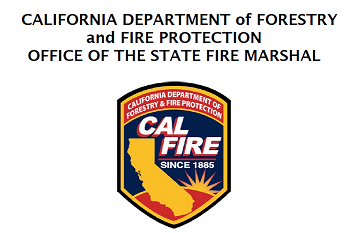联系我们
- 电话:025-8658 3475
- 传真:025-8658 3457
- 邮箱:info@fire-test.com
- 网址:www.cprce.com
- 地址:中国江苏省南京市江东中路118号德盈大厦16F
SFM Standard 12-7A-1/State Fire Marshal (SFM) 12-7A
来源:线缆CPR认证服务平台 浏览:1160次 发布于:2023-4-27
California Department of forestry and fire protection office of the state fire marshal
SFM 12-7A-1 Exterior Wall siding and sheathing
SFM 12-7A-2 Exterior Window
SFM 12-7A-3 Under Eave
SFM 12-7A-4 Decking
SFM 12-7A-5 Ignition Resistant material


Certification Required: Yes. The State Fire Marshal (SFM) 12-7A-1 is required in any and all jurisdictions that reference the Wildland Urban-Interface (WUI) Code as well as the California Referenced Standards Code. These are typically referenced in areas identified as high-risk areas for wildland fires near residential/commercial areas. With the increasing occurrences and scale of wildland fires, it is paramount for manufacturers to research where their products are being placed and the applicable codes of where their products are being applied/installed.
Scope: The test evaluates the ability of an exterior wall assembly to resist fire-penetration from an exterior fire exposure. The standardized fire exposure is intended to evaluate all assemblies to a level playing field to show product compliance.
Applicable Products: Exterior wall claddings and sheathings
Test Procedure: The test is performed on a 4 feet wide by 8 feet high representative assembly which mimics field installation practices. The sample is placed in the test apparatus which is constructed to lessen any airflow horizontally as well as vertically which could adversely affect the standardized fire exposure. Following a burner output verification, the base of the exterior surface of the assembly is covered with a noncombustible thermal barrier which extends 3 inches above the 39 inches wide x 12 inches tall burner. This is to allow minimal interference from potential sample distortion during the exposure. The propane-fueled burner is ignited to a verified output of 150 kW (8535 Btu/min) and left at the 150 kW exposure for 10 minutes. At 10 minutes, the burner is extinguished and the post-exposure observation period begins. During both the exposure and post-exposure period, the test technician observes for evidence of combustion on the unexposed surface of the assembly. The test is concluded either 60 minutes after the 10-minute exposure is concluded, or if flame penetration is evident on the unexposed surface of the assembly. The conditions of acceptance of the test method are as follows:
Absence of flame penetration through the wall assembly at any time.
Absence of evidence of glowing combustion on the interior surface of the assembly at the end of the 70-minute test.
A total of three tests must be run to achieve passing results to qualify as a passing assembly to SFM 12-7A-1. If one of the three triplicate tests do not meet the conditions of acceptance, three additional tests may be run to achieve a passing result.
End Result: Pass/Failure Requirement
√ Contact Us:
If you would like further information or pricing on SFM 12-7A-1 - please contact us
Tel: +86 25 86583475 +86 25 86583465
Website: www.fire-test.com www.firete.com
Mail: info@fire-test.com
……
 苏公网安备 32010502010104
苏公网安备 32010502010104 官方微信
官方微信

